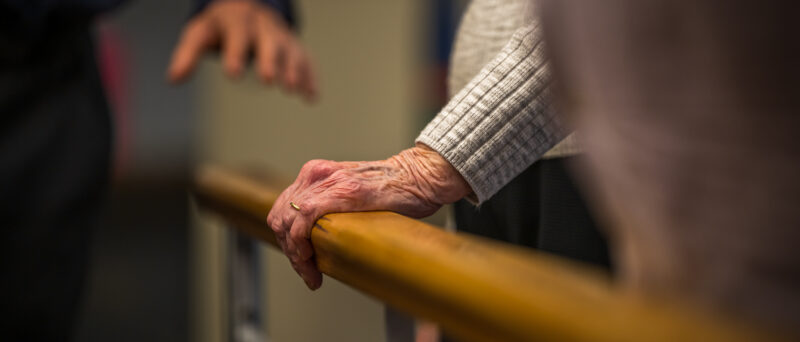Occupational Therapy (OT) is a specialised profession supporting people to do what they do in their everyday life. The word ‘occupation’ refers to any activities one does in their day to day life. It can range from self-care tasks, such as going to the toilet, getting dressed, having a shower, to doing things around the house, such as gardening, cooking, cleaning, and doing things you enjoy, such as going out for walks and joining in your local community activities.
At Concentric, we have a group of OTs who specialise in supporting the older population through our Homecare services. We aim to support the older population to be as independent as they can while continuing to live in the community. We support people through a range of funding sources, including home care packages (HCP), short term restorative care (STRC) and Commonwealth Home Support Programme (CHSP).
As people get older, they face a lot of challenges in their everyday lives. Our OTs have expertise around the common barriers people often face as a result of their complex health conditions. Our team has a wealth of knowledge around common conditions that affect the older population, including dementia, cardiovascular disease, Parkinson’s, arthritis and stroke etc.
The aim of our OTs is to ensure the safety of the older population in the community, as well as supporting their independence. Below are some of the examples of how they support our older population:
- Minor Home modifications:
Our OTs are skilled in providing recommendations around minor home modifications to improve safety in the house. Examples of minor modifications include installing grab rails and handrails, providing portable ramps, prescribing handheld showers, and changing turning taps to lever taps.
- Major Home modifications:
The use of mobility aids such as walking frames and wheelchairs are common amongst the older population. To improve accessibility of the house, we provide recommendations around bathroom modification such as installing a step less shower, as well as installing permanent ramps or wheelchair lifts at entrances of the house.
- Assistive technology:
There are plenty of assistive technologies available to support the safety and independence of older populations. Our OTs are skilled in providing recommendations on equipment that is most suitable for the client. Some of the common equipment we prescribe include wheelchairs, mobility scooters, electric lift recliners, electric bed, and personal alarms.
- Daily Living aids:
A lot of time people don’t realise what a big difference a small piece of equipment can change their life. Our OTs have knowledge around daily living aids that can support the older population to stay as independent as they can. As OTs, some of the most common aids we recommend include jar/ can openers, adaptive cutleries, car transfer bar, over toilet frame, shower chair, picked up stick, long handled shoe horn, and so much more!
- Fall prevention:
Falls are one of the biggest risks to older populations and we want to prevent them from happening. As OTs, we address this risk by looking at different factors that contribute to falls. This includes looking at the environment to remove any potential trip/ slip hazards, ensuring there is adequate lighting around the house, ensuring the person has appropriate footwear/ non-slip socks, and working with physios to ensure there are appropriate gait aids.
- Pressure management:
For people with mobility issues and staying seated in the wheelchair for a long period of time, pressure injuries can develop. Our OTs specialise in providing recommendations on pressure cushions and pressure mattresses to prevent that from happening.
- Cognitive support:
Cognitive difficulties are common amongst the older population, especially with the prevalence of dementia. Our OTs support clients and their families to address some of the common cognitive difficulties, such as reduced memory and disorientation. We look at compensation strategies, such as creating a schedule for appointments, as well as exploring technology such as reminder clocks and orientation clocks.
Concentric emphasises a multidisciplinary approach, which means our group of OTs often works very closely with other disciplines including physiotherapists, speech pathologists, exercise physiologists and dietitians. We understand that only with a comprehensive approach can we achieve the best outcome for our clients.
To find out more about the services that our Homecare OT’s can support you with, please email homecare@concentric.com.au or phone 1300 148 160.
–Created by Wincy Wong, Senior Occupational Therapist


